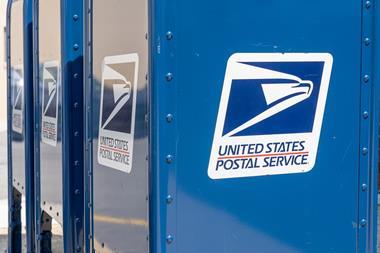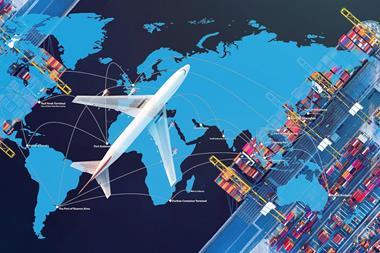
Photo: William Potter/ Shutterstock
Air cargo needs to “embrace volatility”, a leading industry analyst told the World Cargo Summit in Ostend on 28 January.
“We are living in a highly uncertain environment,” Ludwig Hausmann, senior partner at consultant McKinsey & Co told the Summit.
Powerful tail winds are supporting the industry strongly, he said, mentioning 12% growth last year and tight capacity.
This view was also expressed by Rogier Blocq, director product development at data specialist WorldACD, which believes capacity is increasingly catching up with demand.
However, there are equally powerful headwinds with the US moving to protectionism by adding regulatory measures that could affect e-commerce – a big talking point throughout the Summit - topping the list.
Hausmann added a slow rate of innovation and adaption of environmental and social goals has the potential huge disruptions in the coming years. He urged the industry to pay attention to these developments now.
The immediate concern though is the new US administration’s approach to trade.
There was much talk about the recent spat with Colombia where US president Donald Trump had used the threat of a 25% tariff hike, among others, to make the South American country accept deportees.
Issued just ahead of the peak flower export season, Bogota backed down and a deal was reached.
What is causing the concern is the precedent, which moves business away from a rule-based system, one attendee said.
Creating uncertainty
It also creates uncertainty as no one knows exactly what, who and when the US administration will levy tariffs on.
“Watch this space - it changes every day,” was the advice of Marco Bloemen, managing director of Aevean, an aviation data consulting firm.
“It depends on what is going to happen but it might be 10% it might be all the way to 60% if we have a 60% tariff then we have an issue,” said Bloemen.
Also uncertain is the future of America’s de minimis rules. Currently packages coming into the US with a value of less than $800 are not subject to tax.
“The Trump administration might change that,” said Hausman. “There’s a real question mark about the development of that.”
There are also other new challenges facing the market – new filing rules and lots of them, reported Glyn Hughes director general of TIACA.
This refers to a 17 January US Customs and Border Protection (CBP) announcement of a Notice of Proposed Rulemaking (NPRM) aimed at tightening the de minimis duty exemption for certain low-value shipments entering the US.
“The proposed Trade and National Security Actions for Low-Value Shipments rulemaking protects intellectual property rights, consumer health and safety protections, and closes enforcement gaps while safeguarding American businesses and workers from unfair trade practices,” CBP said at the time.
But the consequences are potentially huge for the more than 1.4bn packages the US is expecting this year assuming there is no further growth.
“It indicates their (CBP’s) intent to introduce filing requirements on every shipment bought from a platform,” Hughes told Air Cargo News adding it was an administrative burden complicating the supply chain.
Against this wave of concern stands a much more optimistic view.
The average value of an e-commerce package is between $15 and $18 meaning even a tax of 20% is absorbable pointed out Nikolia Schaffner, Swissport’s vice president for e-commerce.
“I don’t think that is going to meaningfully impact consumers decisions. I don’t think consumers will give up,” Schaffner said.
Schaffner’s second reason is there is no political rationale for going after e-commerce, the real goal is to get industries to return to America ie bringing back car production meaning car parts and microchips (something mentioned by others) will be the first target, he said.
At this point industry leaders remain sanguine as the general belief is good numbers will run into next year.
“There will be logistic challenges – when it happens,” Wilson Kwong, chief executive, Hong Kong Air Cargo Terminals Limited told the Summit after expressing confidence in the industry’s future.
Speaking on 28 January - Chinese New Year’s Eve - he pointed out this is the Year of the Snake, known for its agility something he suggested both individuals and businesses need to be in the coming year.
And of course, it might not happen at all.
“A lot has to happen from the US government perspective for that to be approved,” said Craig Strickland, chief sales officer, BoxC, an international e-commerce management company pointing out acts of Congress were needed to change de minimis rules.
Conferences are not usually held in Ostend as it’s not that well known that the Belgian coastal resort has its own airport less than 2 km from the town centre as Eric Dumas, chief executive, Ostend-Bruges Airport told the Summit.
Ostend Bruges is not competing on size and capacity although it does make the point its location is ideal for getting goods into the UK via the Channel Tunnel. Instead, its strategy is to be agile and efficient and remain close to its customers.
“The first warehouse is now open and ready to be rented,” said Dumas. “We will soon implement the Ostend Cargo Community.”













